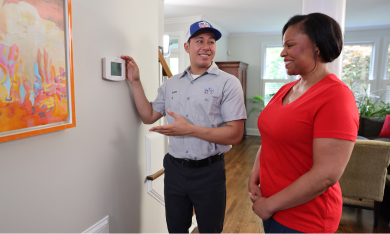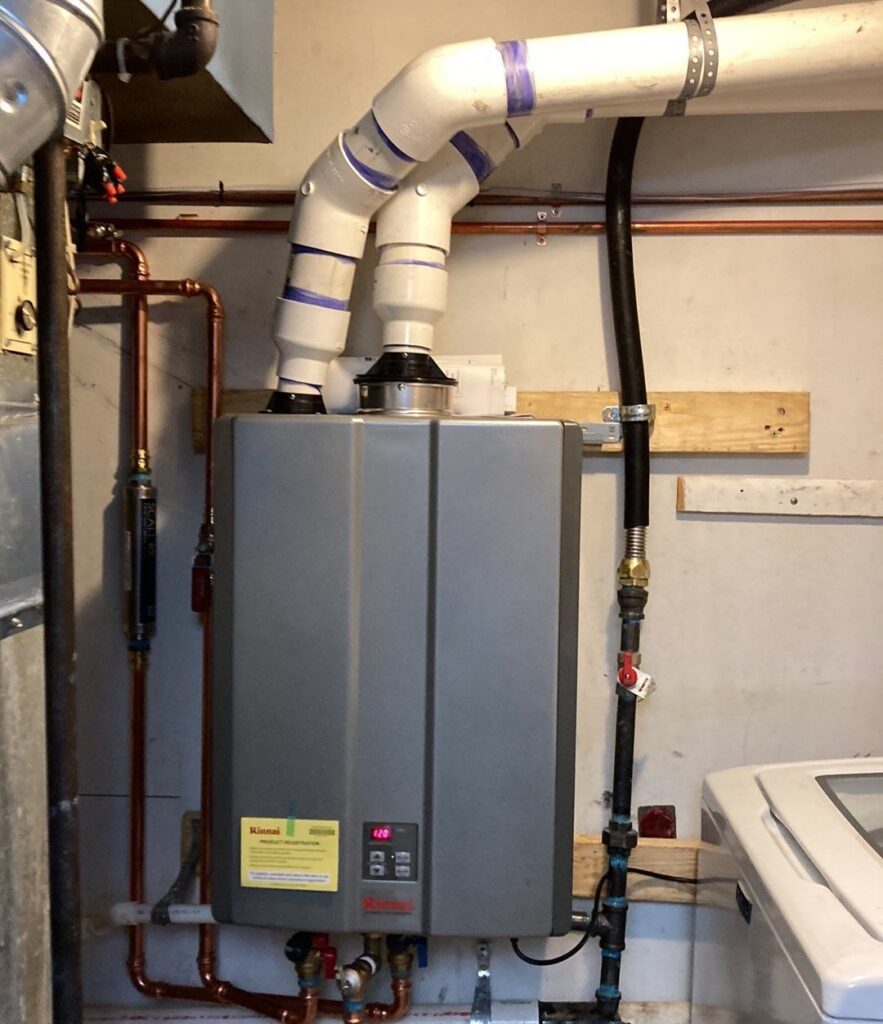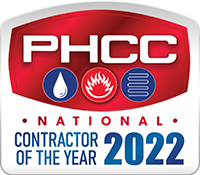

If you own a tankless water heater, your unit has many advantages over traditional tank water heaters, such as a longer life span and lower energy costs. You may not realize that they have a higher risk of freezing than standard units.
While it’s not as common as frozen pipes, understanding your tankless water heater system, how to prevent freezing, and how to thaw your system can help you make decisions that save your home and tankless system from damage this winter.
How Do Water Heaters Freeze?
Unlike traditional storage tank water heaters that heat and store water throughout the day, tankless units provide on-demand hot water. This means there’s no running water when it’s not in use, and stagnant water is at greater risk of freezing.
Most tankless water heaters have built-in freeze protection, but they only protect the internal components in temperatures from minus 5 degrees to minus 22 degrees Fahrenheit.
Electric standard and tankless units are at the greatest risk of freezing during a power outage. Without any heat, the water in a standard electric unit can freeze in the tank and cause it to burst, while tankless units can have damaged internal components and leaks.
Gas standard water heaters are the least likely to freeze because you can sustain gas power during an electrical outage. Your unit will use natural gas to continually heat water in the tank.
How To Thaw a Tankless Water Heater
Your tankless system is frozen; now what? Thawing your unit is crucial to prevent further damage to your system.
Follow these simple steps to help thaw your tankless water heater:
- Flip the circuit breaker or turn off the gas valve to your unit
- Find and close the water valves for the unit
- Allow your system to sit and thaw
- Use a space heater or hair dryer to speed up the process
- Open the water supply valve to let any water drain
- Inspect the unit and surrounding pipes for leaks
- Flip the breaker back on or open the gas valve after normal waterflow through the unit is restored
If you encounter leaks or suspect damage to your water heater, request professional plumbing services to resolve any issues and prevent further damage.
How To Prevent a Frozen Tankless Water Heater
You should take preventative measures to protect your unit. Here are a few ways you can prevent your tankless water heater from freezing this winter:
- Install your water heater in a temperature-controlled environment: Tankless water heaters can be installed indoors and outdoors. It’s important to find a sheltered installation location to protect your unit from the elements. By placing your system in a well-insulated environment, you greatly reduce the risk of your system freezing.
- Drip hot water from your faucets in below-freezing temperatures: By leaving a constant flow of warm water moving through your system, you can protect your water heater and water supply pipes from freezing.
- Install a whole-home generator: Ensure you always have power for your water heater, heating system, refrigerator, and other essentials during a power outage with a standby generator.
- Winterize your tankless water heater if you’re away for an extended period: Draining water from your system ensures no standing water inside the unit, so freezing risks are minimal.
Choose UAT for 24/7 Emergency Plumbing Services
At United Air Temp, our highly trained plumbers are ready to help with all your plumbing service needs.
With 24/7 emergency repair availability, upfront pricing, and quality craftsmanship, your satisfaction is guaranteed when you choose our team to repair your frozen tankless water heater.
We can also help if freezing temperatures result in frozen and burst water supply pipes. We’ll restore your pipes and water heater for optimal plumbing function.
Ready to schedule tankless water heater or burst pipe repair in the Baltimore area? Call United Air Temp at (410) 413-3549 today for a service appointment.












